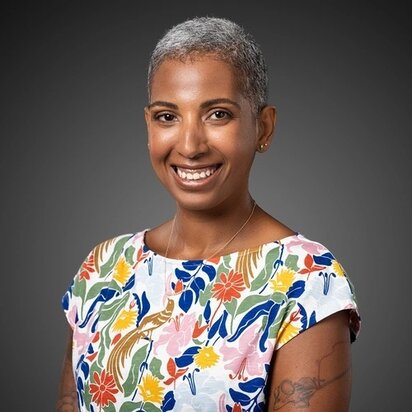Ein Gastvortrag von Dr. María Cioè-Peña (Penn GSE, Pennsylvania, USA)

-
Uhrzeit 14:15 Uhr - 15:45 Uhr
-
Veranstaltungsformat: Präsenzveranstaltung
-
Zielgruppen: Studierende, Lehrkräfte, Lehrende
-
Veranstaltungsort: Neubau B.231 ( Im Neuenheimer Feld 561/562 69120 Heidelberg)
-
Veranstalter: Pädagogische Hochschule Heidelberg, Fach Englisch
-
Der Vortrag findet im Rahmen des Seminars “Social Justice Movements in US History” von Prof.'in Dr. Carolyn Blume statt und wird auf Englisch gehalten. Zur besseren Planung bitten wir um Anmeldung. Die Veranstaltung wird durch das BMBFSFJ-Projekt DigiNICs (
María Cioè-Peña ist Assistant Professor an der Penn Graduate School of Education in Pennsylvania, USA. Dort forscht und lehrt sie zur inklusiven Bildung für bilinguale Kinder aus in die Minderheit gedrängten Gruppen.
Im Folgenden finden Sie das englische Abstract der Veranstaltung:
Currently, in the U.S., educational labels like “English Language Learner” and “Student with Disabilities” are understood/viewed as necessary components to ensuring that marginalized students receive important services, modifications, and accommodations within schools. However, these labels, which originate from formal educational policies, are rooted in colonialism, racism, and ableism. They may, ultimately, function as methods of racializing and pathologizing linguistically-minoritized students and their families. These labels are also used to limit racialized children’s access to inclusion and bilingual education programs. This significantly impacts their opportunities to learn, and in turn, their socio-academic development and upward mobility.
In this presentation, I will first situate current conceptualizations of languages, language learning, and linguistic practices within oppressive structures stemming from coloniality—namely anti-Blackness and ableism. I will then show how the lived experiences of racialized and pathologized members of ethnoracial groups, like Latinxs—in the context of their positioning with(in) public school institutions—are critical to understanding issues relating to racial integration, opportunities to learn, and social stratification. Throughout, I will draw connections between the past and present offering recommendations for teachers and teacher educators. Finally, I will share how humanizing approaches can be used to inform larger systems approaches while supporting the development and enactment of equity and justice in applied linguistics across policy, research, and practice.
Neubau B.231
Im Neuenheimer Feld 561/562
69120 Heidelberg